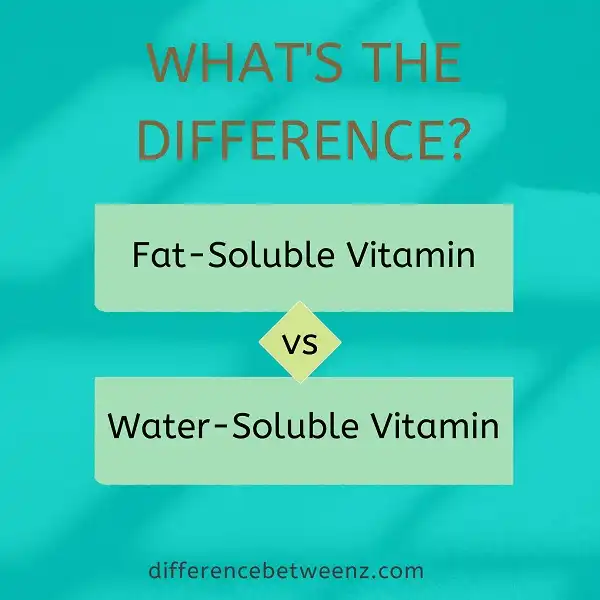When most people hear the words “vitamin” and “nutrient,” they automatically think of water-soluble vitamins. After all, these Micronutrients are essential for human health and almost everyone knows that you need to consume them in order to stay healthy. However, what many people don’t know is that there is another category of vitamins – fat-soluble vitamins – which are also important for human health. In this blog post, we will explore the difference between water-soluble and fat-soluble vitamins. We will also discuss why it is important to consume both types of vitamins.
What is Fat-Soluble Vitamin?
Fat-soluble vitamins are a group of Fat-soluble vitamins that includes vitamins A, D, E, and K. Fat-soluble vitamins are absorbed along with fat in the diet and are stored in the body’s fatty tissue. Because they are stored in the body, fat-soluble vitamins can build up to toxic levels if they are consumed in excess. Fat-soluble vitamins are found in animal sources of food, such as meat, milk, and eggs. Some plant foods, such as spinach and broccoli, also contain small amounts of fat-soluble vitamins. Fat-soluble vitamins are essential for a variety of functions in the body, including vision, bone health, and blood clotting.
What is Water-Soluble Vitamin?
Water-soluble vitamins are a group of compounds that dissolve in water and are excreted from the body relatively quickly. Unlike fat-soluble vitamins, which are stored in the liver and fatty tissues, water-soluble vitamins are not stored in the body and need to be replenished daily. Water-soluble vitamins include all the B-vitamins (thiamin, riboflavin, niacin, pantothenic acid, biotin, folic acid, vitamin B6, and vitamin B12) as well as vitamin C. Although these vitamins are present in many foods, they are often lost during cooking or processing. For this reason, it is important to include a variety of fresh fruits and vegetables in your diet.
Water-soluble vitamins are also available in supplement form. However, it is best to get your vitamins from food first and supplements second. Too much of certain water-soluble vitamins can be harmful; for example, too much vitamin C can cause diarrhea while too much vitamin B6 can cause nerve damage.
Difference between Fat-Soluble Vitamin and Water-Soluble Vitamin
Fat-soluble vitamins are those that can be stored in the body and include vitamins A, D, E, and K. These vitamins are found in foods that contain fat, such as butter, eggs, and oily fish. Fat-soluble vitamins are absorbed along with fats from the diet and stored in the liver and fatty tissues. The body can then use them when needed. Water-soluble vitamins are not stored in the body and include all the other vitamins: B vitamins and vitamin C. These vitamins dissolve in water and are not stored in the body so we need a regular supply from our diet. Any excess is flushed out of the body in urine. Because water-soluble vitamins aren’t stored, we need to consume them more regularly than fat-soluble vitamins.
Conclusion
While water-soluble vitamins are essential for health, they are not as well-tolerated by the body and can be easily excreted in the urine. Fat-soluble vitamins, on the other hand, are better absorbed by the body and stored in fatty tissues. This is why it’s important to make sure you get enough of both types of vitamins in your diet.


